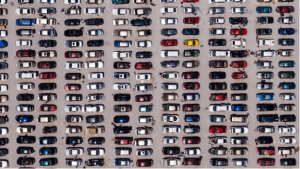Finding a good parking spot can often be a frustrating endeavor. Despite the fact that cars spend most of their time parked and not actively contributing to pollution, the struggle to locate an ideal parking spot persists. In many cities worldwide, the space allocated for cars exceeds that designated for humans. However, with a proactive approach and the effective utilization of both mental faculties and online resources, you can significantly improve your chances of finding a good parking spot. By planning ahead and adapting to unique situations, you can navigate the parking challenge successfully.
Planning ahead for parking success
When it comes to finding a good parking spot, resourcefulness is key. This task becomes particularly challenging in car-dependent cities like Oakland on the West Coast. It’s important to recognize that many others are also vying for limited parking spaces. Fortunately, by engaging in strategic planning and leveraging helpful mobile applications, you can streamline your search for convenient parking options.
A plethora of guides are available online, providing detailed information about parking locations and associated costs. Consulting these guides can greatly simplify the process of finding suitable parking in Oakland. Additionally, specific apps even enable you to prepay for parking, alleviating any concerns upon your arrival. Recognizing the uniqueness of each city, access to detailed guides created by locals can be immensely beneficial for effective planning.
The advantages of reserving parking spots
Planning ahead becomes significantly more efficient when you reserve a parking spot that best suits your needs. By reserving in advance, you already know where you’re headed and what to expect. This not only saves you time but also conserves fuel that would otherwise be wasted cruising around the parking lot. Whether you’re a local or a visitor, reserving a parking spot proves highly advantageous.
Unpredictability: the essence of parking lots
Parking lots exhibit a dynamic nature, with variations from day to day. They represent a variable space and an ever-changing ecosystem. Without a plan or a reservation, it can be challenging to anticipate the conditions you’ll encounter during your parking expedition. Understanding the mindset of other drivers is crucial when looking for a good parking spot.
If a parking lot is located near residential buildings or office spaces, most people will naturally gravitate towards the proximity. However, some individuals deliberately choose to park farther away, recognizing that others will flock to the nearest spots. Additionally, considering the position of the sun is important for open parking lots, as people generally prefer shaded areas for their cars. These variables should be taken into account when navigating a parking lot.
Scientific insights and parking lot complexity
Various statistical models have been developed to simulate parking lot dynamics, but their success has been limited due to the inherent complexity and unpredictability of these spaces. Determining whether to opt for a closer spot, a farther one, or something in between can be likened to the Gaussian curve of normal distribution. However, these models do not provide practical guidance when you find yourself wandering around a parking lot. Acknowledging the unpredictable nature of parking is essential, requiring adaptability and flexibility.
Addressing the parking dilemma: the need for efficient public transport
It may seem trivial to worry about finding a piece of concrete to park on, but for many individuals, especially in the US, this is a genuine problem. Beyond being a mere inconvenience, constantly looking for parking spaces poses a significant financial burden in the long run. To overcome this challenge, it is crucial for decision-makers to prioritize the development of efficient public transportation systems. While many European countries have successfully implemented such systems, the profit-driven nature of the US prioritizes individual cars over public transport, perpetuating the parking struggle.


